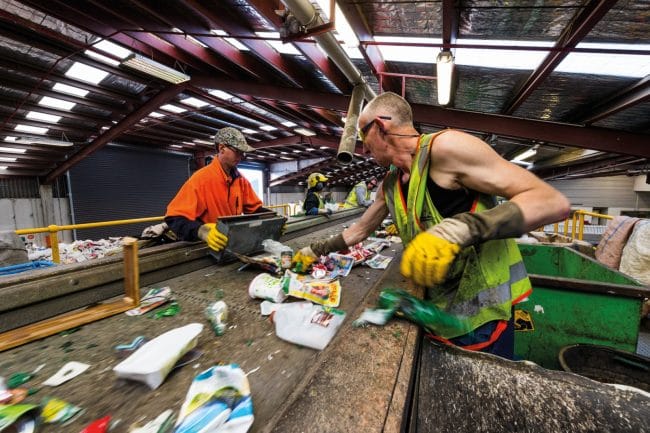Dirty nappies and dead animals are all ending up in people’s recycled bins and WasteNet Southland is about to start an audit process to see what’s going on.
According to data in a report to the Wastenet Advisory Group’s monthly meeting in Gore today, 16-17% of the recycled material is contaminated.
Invercargill City Council group manager infrastructure Erin Moogan told the committee that following an investigation late last year, it was clear there were trends of people “just getting it wrong.”
Green waste was also ending up in the recycle bin, and auditors would start going around and lifting the lids to check what people were putting in them.
“We want to do more investigation into what people are doing wrong to target our education around that,” she said.
The Government’s standardised nationwide collection rules kicked in at the start of February and WasteNet, the shared solid waste service for Invercargill City Council, and Southland and Gore district councils, has been undertaking public education initiatives.
The question was also asked at the meeting about how much ‘fly tipping’ was going on (illegal dumping of rubbish on private and public land), but that information was collected and managed by the transport sector, rather than WasteNet.
An update was provided by the GDC about its consent with Environment Southland for cleanfill, which staff admitted had been challenging.
Since the landfill closed in 2005, the GDC has been rehabilitating the site with cleanfill material and green waste, and planting native vegetation.
Environment Southland issued the Gore council with an abatement notice in August 2023 due to its practice of placing large volumes of cleanfill material and green waste at the site.
A staff member said it was getting harder and harder to dispose of cleanfill (natural soils such as clay, soil, and rock, and some manufactured materials such as concrete, brick or tiles).


